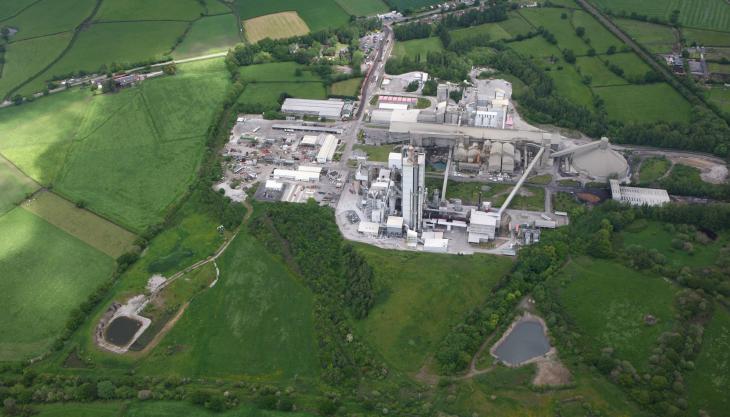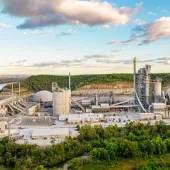Hanson one step closer to CCS in UK

HyNet North West project to receive Track 1 funding under Government’s CCUS cluster sequencing
HANSON UK and their partners in the HyNet North West consortium, which aims to create the world’s first low-carbon industrial cluster in the north-west England and North Wales region, have been selected to receive Track 1 backing under the Government’s carbon capture, usage, and storage (CCUS) cluster sequencing process.
The announcement, made yesterday by Energy Minister Greg Hands, means the consortium is a step closer to achieving its ambition to create the world’s first low-carbon industrial cluster through its development of a hydrogen and carbon capture and storage (CCS) project. The project will play a critical role in the UK’s transition to net zero greenhouse gas emissions by 2050 and the fight against climate change.
The region HyNet North West covers – which stretches from Flintshire and Wrexham, through Cheshire, Liverpool, and Greater Manchester into Lancashire – has the largest concentration of advanced manufacturing and chemical production in the UK, including Hanson’s Padeswood cement works, near Mold, Flintshire.
The announcement will result in huge economic benefits to the region, safeguarding existing jobs and creating around 6,000 new employment opportunities. It also gives Hanson the confidence to invest in a carbon capture plant at their Padeswood cement works, which will connect to the planned HyNet CO2 transport and storage system. The company is already carrying out a CCS feasibility study at the site, which will provide a clear design basis and cost estimate for the next stage.
Hanson chief executive officer Simon Willis said: ‘This announcement is fantastic news for everyone involved in HyNet North West and we are excited to be the first UK cement producer working on CCS in the UK as part of this collaborative project. Cutting CO2 emissions is a key priority for us, and we’ve already taken big steps in the right direction, but CCS at cement plants is a key part of our pathway to reaching net zero by 2050.’
The UK Government recognizes the decarbonizing of industrial clusters is an essential part of the journey to net-zero greenhouse gas emissions by 2050, as described in its 10 Point Plan for a Green Industrial Revolution. As a result, earlier this year, it launched a process to determine the sequence in which it would support this, with Track 1 clusters (HyNet and East Coast Clusters) to begin decarbonizing industry from 2025 and Track 2 clusters from around 2030.
HyNet will reduce regional CO2 emissions by up to 10 million tonnes – including up to 800,000 tonnes from Hanson’s Padeswood plant – every year by 2030: the equivalent of taking four million cars off the road. The project, led by Progressive Energy, is being developed by a consortium of regionally located partners including Cadent, CF Fertilisers, Eni UK, Essar, INOVYN (part of the INEOS Group) and the University of Chester, as well as Hanson.
David Parkin, HyNet project director, said: ‘HyNet is led by the demand from organizations and stakeholders across the north-west of England and North Wales, who all want to reduce carbon emissions to net zero. From as soon as 2025, the project will enable our manufacturing sector across the region to decarbonize, as well as providing the opportunity to transition the way we travel and how we heat our homes.
‘The project partners are ready to deliver and, as one of the first two industrial decarbonization clusters, we will play a big part in shaping the country’s hydrogen economy, positioning the UK as a global leader in the sector. We are looking forward to working closely with the Government and the other clusters to deliver and grow the infrastructure as rapidly as possible, both in breadth and depth, over the coming years.’
Dr Dominik von Achten, chairman of the managing board of HeidelbergCement, Hanson’s parent company, said: ‘Yesterday’s announcement is great news for HeidelbergCement, and a well-deserved recognition for the HyNet consortium and our colleagues working on CCS in the UK as part of this collaborative project. Cutting CO2 emissions is a key priority for us, and we are delighted to add our Padeswood cement works to our growing range of CCS activities, as a key part of our pathway to reaching net zero.’









